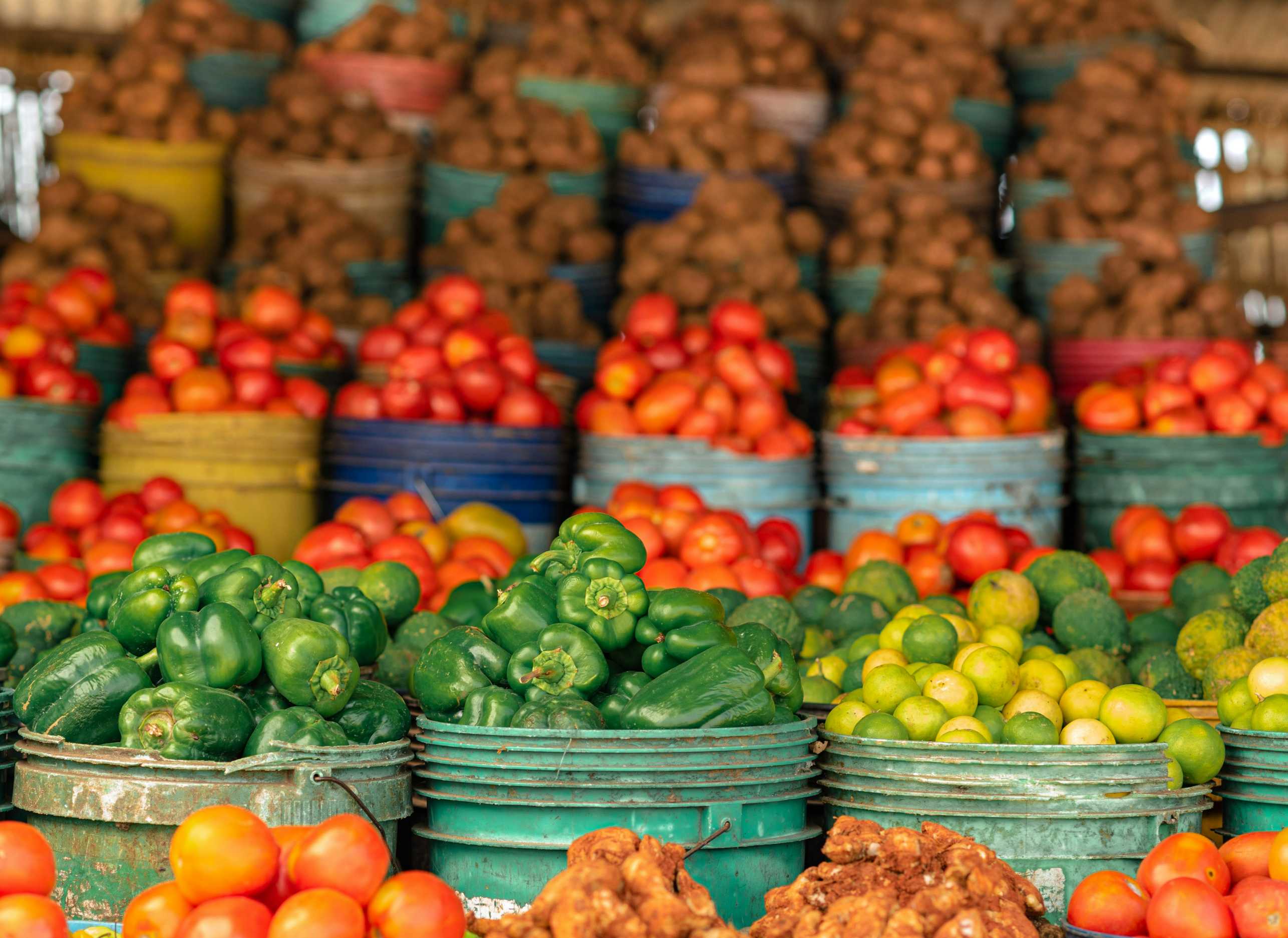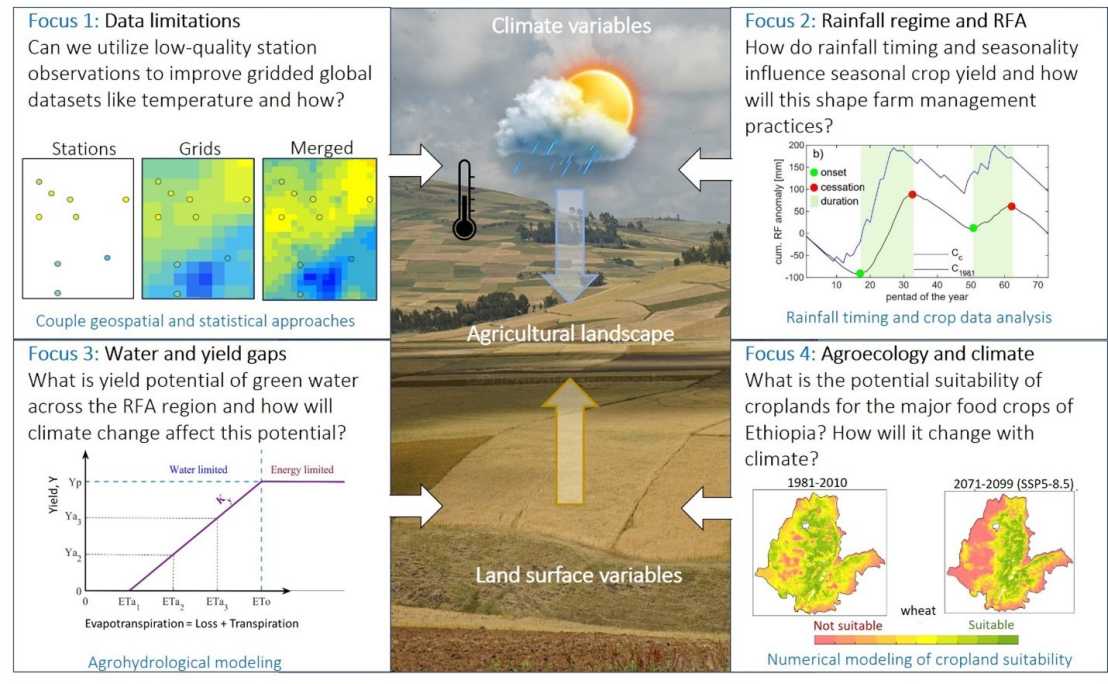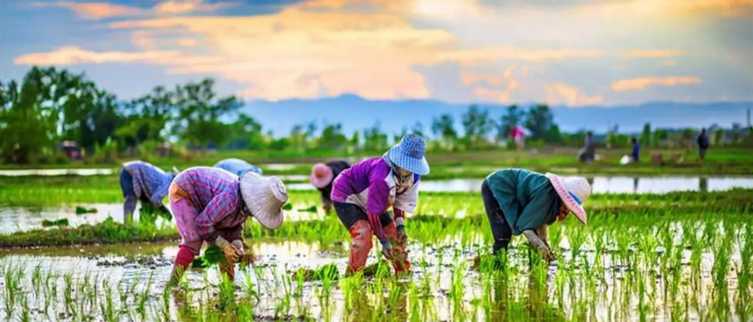Global Food Security
ETH for Development (ETH4D) has been supporting the following projects in the field of Global Food Security

Human Faeces-Derived Biochar for Agriculture

The aim of the project is to develop an effective faeces-derived biochar soil amendment by enriching it with source-separated urine as well as organic compost. The project follows the premise that recovery and value-added utilisation of excreta through pyrolysis could provide a safe, decentralised, and simple to install excreta management facility for dry sanitation solutions in low- and middle-income countries while simultaneously closing the nutrient loop and improving soil quality. The application of biochar in agriculture has received extensive attention due to its potential in restoring soil health by improving soil structure, thus increasing microbial activity, bioavailable nutrients, and water and fertiliser retention capacity. Moreover, its porous, sponge-like structure can lead to effective nutrient absorption and slow nutrient release leading to decreased loss and more balanced nutrient fluxes, making it potentially a base for slow-release organic fertilisers. To date, little work has been done to assess the potential of biochar produced from human faeces, a currently underutilised organic source available in enormous volumes.
The study will employ Farmer Participatory Research (FPR) methodologies involving farmers throughout the process, ensuring the development of products that are suited socially, culturally, and practically to smallholder farmer conditions.
Focus Country: Guatemala
Contact: Prof. Johan Six
Partners: external page Mosan (Guatemala), external page Vivamos Mejor (Guatemala)
ETH4D Grant: ETH4D Research Challenges Grant
The Future of Rainfed Agriculture and Sustainable Food Production in Ethiopia

Agricultural transformation is the top sustainable development priority for poverty eradication (SDG 1) and ensuring food security (SGD 2) in developing countries like Ethiopia. Climate change poses a significant challenge, impeding the achievement of these development goals. Success in these goals requires informed national and sub-national agricultural development plans, policies and decisions aimed at increasing productivity and ensuring a resilient rainfed agricultural system. This research aims to support such informed actions by providing a comprehensive data-driven understanding of the agro-environmental conditions within the context of climate change in Ethiopia. It investigates the climate-crop and climate-agroecological interactions that are relevant for climate risk, and water and soil management planning and actions in the face of a changing climate in Ethiopia through data analyses and modeling.
Focus Country: Ethiopia
Contact: Mosisa Wakjira, Prof. Peter Molnar, Prof. Johan Six
Partners: external page Water and Land Resource Center (Ethiopia), external page Ministry of Agriculture (Ethiopia), external page Prof. Nadav Peleg (Hydrometeorology and Surface Processes Group, University of Lausanne)
ETH4D Grant: E4D Doctoral Scholarship
Climate Adaptation through Improved Storage (Adopt2Adapt)

Climate change is expected to worsen global food insecurity and poverty. These adverse effects will be most pronounced in areas already suffering from high levels of poverty and hunger, including Sub-Saharan Africa. Yields, in particular for maize – the staple crop for most countries of Eastern Africa – are projected to experience a double-digit decrease in tropical regions, even when adaptation measures are implemented, and yield fluctuation is expected to increase, further amplifying poverty and food insecurity in the region.
The research focused on low-cost technology for improved on-farm storage. Hermetic storage bags limit atmospheric oxygen, which causes desiccation of insects and other pests that damage stored grains whereby fungal growth is restricted in hermetically stored grains, if the produce is sufficiently dried. Hermetic storage bags could thus curb post-harvest losses and allow farmers to store their produce longer and could help farmers’ cope with yield fluctuations induced by climate change. However there are no studies that systematically analyze these effects under realistic everyday conditions. This transdisciplinary project analysed the potential of improved on-farm storage for reducing the adverse effects of climate change on smallholder farmers' income and food security. The research was carried out with a sample of ~8’000 smallholder farmers in Western Kenya with randomly allocated interventions of hermetic storage bags per smallholder farming household. Over the course of two years, data was collected through SMS-based mobile phone surveys, an efficient and effective method to collect data at high frequency.
Focus country: Kenya
Contact: Prof. Dr. Thomas Bernauer
Partners: external page World Food Programme, external page Swiss Agency for Development and Cooperation, external page Helvetas
ETH4D Grant: ETH4D Research Challenges Grant
Biochar as a Soil Amendment for Sustainable Yam Systems in West Africa (Biochar4Yam)
Yam (Dioscorea sp) is an important tuber crop for the livelihood of many people in West Africa. Besides providing food and a source of income, it also has a high cultural value for many groups. Yam is considered to require high soil fertility, and is therefore traditionally planted after a long-term fallow and usually grown without external inputs. Although it is possible to increase tuber yield, for example by applying manure and mineral fertilizers, recent research has shown that these practices result in a decline in soil organic matter content. Soil organic matter has a critical role for soil fertility and is positively correlated to yam tuber yield.
The aim of this project is to assess whether biochar application could be a strategy to halt soil organic matter decrease and therefore to improve the sustainability of yam cropping systems. The project will be carried out at one site in Burkina Faso and one site in Côte d’Ivoire. The thesis is organized in three parts:
- To assess the availability of organic wastes and the interest of actors to produce biochar.
- To analyse the effect of biochar on yam and cowpea production and soil properties.
- To assess the early adoption and acceptance of biochar production and use by farmers
Focus Countries: Burkina Faso, Côte d'Ivoire
Contact: Helena Ström, Prof. Dr. Emmanuel Frossard
Partners: Dr. Delwende I Kiba (external page INERA), Dr. Valery K Hgaza (external page CSRS), Dr. Dao Daouda (external page CSRS)
ETH4D Grant: E4D Doctoral Scholarship
Improving the Sustainability of Food Production under Climate Change: Reinventing Agroecological Rice Farming in Iran

Climate change is a growing threat to the global agricultural system and food security. This reality is particularly evident in the agriculture sector of northern Iran, where farming is predominantly rainfed and smallholder rice farmers have limited alternative sources of livelihood. Rice is the second most important staple food in the Iranian diet. Water scarcity, Input-intensive, and rice monoculture farming practices have decreased yields and increased pesticide and fertilizer use, causing food insecurity in Iran. On top of this, the adaptive capacity of smallholder rice farming communities, whose food and income security are based on rice farming, is very limited.
Agroecology, a sustainable approach to farming for climate change mitigation and adaptation that reduces climate risk has been described as feasible for smallholder farmers and as a knowledge-intensive field. However, agroecological research has not been the focus of international and national agricultural research centers, especially in Iran, and therefore, there are few standardized methods to assess the social, economic, and ecological performance of agroecological farming systems. To this end, the Food and Agriculture Organization of the United Nations (FAO) developed an analytical framework, the Tool for Agroecology Performance Evaluation (TAPE) to produce global and harmonized evidence on the multidimensional performance of agroecological systems.
In the initial phase, Fatemeh will create a comprehensive model to evaluate water resource supply and demand in the pilot region, Mazandaran province, Iran. The aim of this part is to identify specific climate vulnerabilities and subsequently connect them to the next relevant parts of the project for the purpose of determining site-specific agroecological practices.
Afterward, Fatemeh will utilize TAPE to evaluate the multidimensional agroecological performance of 200 conventional and innovative rice farms in a purposeful sampling design. The outcomes will be disseminated across the pilot region through extension services provided by farmer field schools, and F2F training-learning networks.
The project's outcomes will encompass three key aspects: Firstly, the community diagnostic provides crucial information about the climate change impact hotspots, the current level of agroecological performance; and most importantly the main challenges of achieving sustainable livelihoods for smallholder rice farmers. This diagnostic allows for the development of a timeline, benchmarks, and outcomes to keep the work on track. Secondly, it will drive paradigm shifts that encourage the recognition and seamless integration of agroecological principles and practices into both policies and broader societal frameworks. Lastly, the project will strategically focus on building capacities, particularly smallholders. This capacity enhancement will extend from on-farm learning to fostering Farmer2Farmer learning knowledge networks.
Focus Country: Iran
Contact: Fatemeh Adelisardou, Prof. Dr. Johanna Jacobi, external page Prof. Dr. Lutz Merbold
Partners: external page The Ministry of Agriculture (Iran), external page Agriculture Jihan Organization of Mazandaran Province (Iran), external page Gorgan University of Agricultural Sciences and Natural Resources (Iran)
ETH4D Grant: E4D Doctoral Scholarship